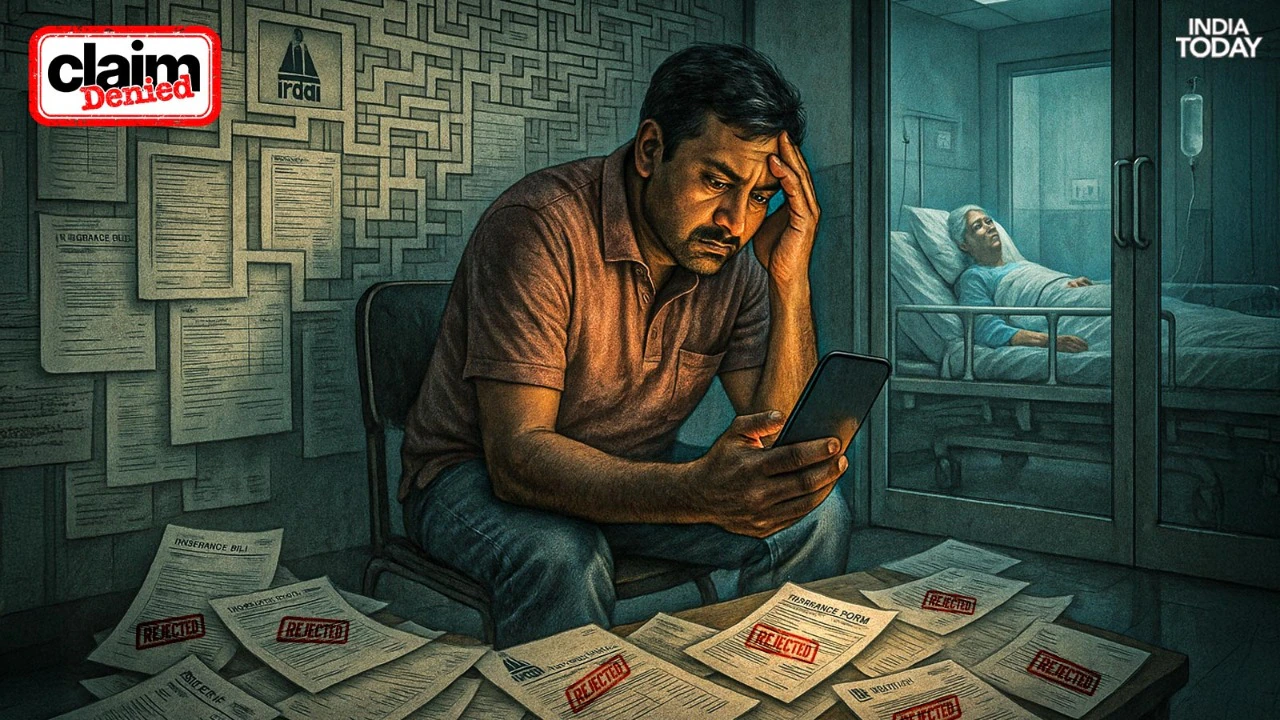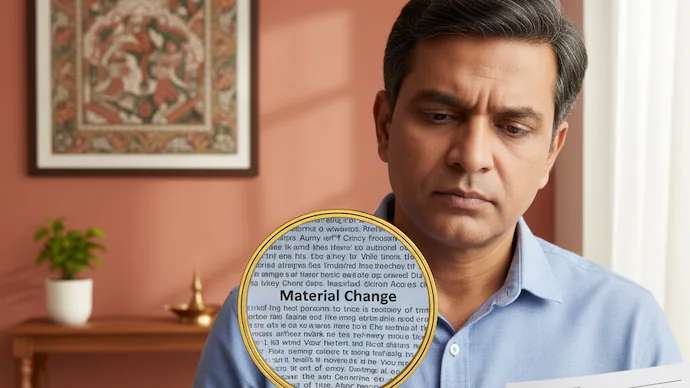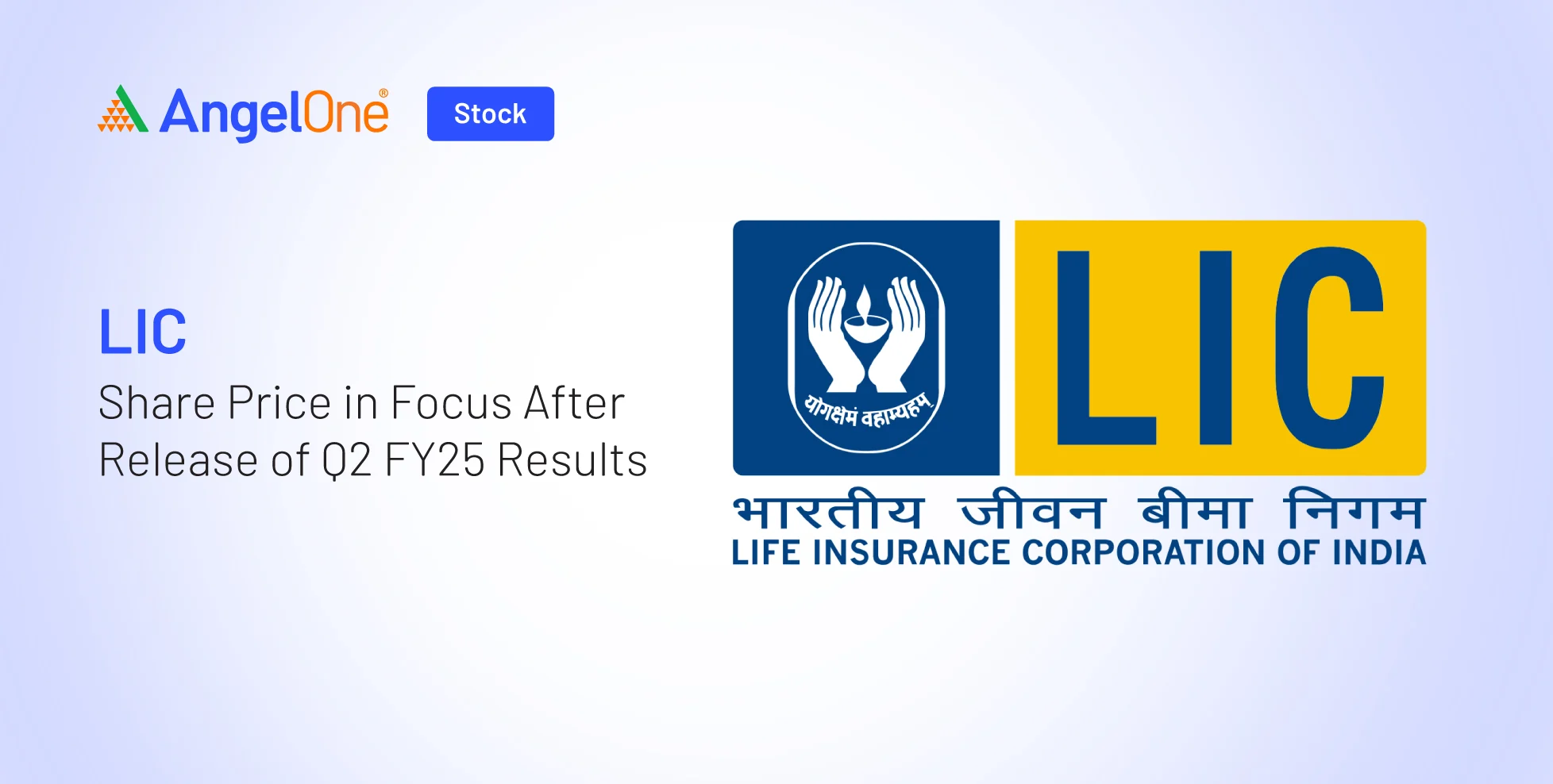Every Claim is a Fight: In India, purchasing health insurance has become a straightforward process, but claiming it often turns into a bureaucratic nightmare. Families like that of Mudit Agarwal frequently find themselves entangled in procedural delays and disputes, while their loved ones wait for urgent medical attention. This story, part of our ongoing “Claim Denied” series, uncovers the frustrating realities of the Indian health insurance system, highlighting gaps in policy clarity, communication, and claim settlements.
For Mudit Agarwal, the ordeal began on the evening of March 3, 2025, when his mother, Poonam Singhal, was admitted to Manipal Hospital in Delhi’s Dwarka for a serious spinal condition. Diagnosed with spinal stenosis, a condition causing severe narrowing of the spinal canal, every movement was agonizing for Poonam. The family initially felt relieved, trusting that their cashless insurance cover from Star Health Insurance would take care of the mounting medical expenses.
However, within hours of registration, the assurance crumbled. By the next morning, Mudit received an email: the cashless claim was rejected, citing a “break in policy period,” a claim suggesting the illness had arisen outside the active policy timeline. Shocked and anxious, Mudit submitted all required documents, prescriptions, and clarifications to assert that the treatment began during the policy’s grace period, which, according to company terms, ensures continuity. Yet, instead of resolution, the insurer raised another issue regarding the hospital’s package charges.
The Timeline of a Disputed Health Insurance Claim
Initial Rejection and Partial Approvals
- March 4, 2025: The initial cashless claim was rejected, citing a policy period discrepancy.
- March 4, 2025, 11:57 am: Star Health approved Rs 4 lakh, allowing the surgery to proceed.
- March 2025: Hospital bill totaled Rs 6.85 lakh. Star Health’s working sheet labeled Rs 2.85 lakh as “expenses not covered” without explanation.
Policy Bonus Complications
The policy carried a base cover of Rs 5 lakh with cumulative bonuses from previous years. Disputes arose over the policy bonus, which was wrongly stated as zero for the current year, despite the previous year showing Rs 2.25 lakh. Mudit argued the correct cumulative bonus should have been Rs 2.75 lakh, but the insurer initially disagreed.
Final Settlement
- March 28, 2025: Star Health settled Rs 4.25 lakh directly with the hospital, citing a Rs 75,000 hospital discount that was not passed on to the policyholder.
- August 2025: Insurer acknowledged Rs 2.25 lakh as the cumulative bonus after multiple disputes.
- Total paid: Rs 6.94 lakh, leaving the family unsure about the remaining bonus amount and potential discrepancies in policy terms.
Read about: Time for Sanity in Insurance Claims
Common Issues in Health Insurance Claims
1. Confusing Policy Terms
Many policyholders face unclear terms related to cumulative bonuses, grace periods, and sum insured enhancements. Misinterpretations by insurers can delay claim settlements.
2. Cashless Facility Challenges
Even with cashless insurance, claim approvals may be partial or delayed, forcing families to deal with hospital bills upfront or follow up extensively with the insurer.
3. Lack of Transparent Communication
In this case, Star Health failed to provide endorsement letters and clear explanations for partial settlements, creating confusion and additional stress for the policyholder.
4. Disputes Over Discounts
Hospital discounts or negotiated packages are sometimes used by insurers to justify reduced settlements, without passing the actual benefit to the policyholder.
5. Regulatory Compliance Issues
Policyholders are often unaware of IRDAI guidelines, such as rules preventing cumulative bonuses from being reset during portability or sum insured enhancement, which can complicate disputes.

How Families Can Protect Themselves
Understand Your Policy Thoroughly
Know the base sum insured, cumulative bonuses, grace periods, and coverage limits. Read the fine print carefully to avoid surprises during claims.
Keep Detailed Records
Maintain copies of all bills, prescriptions, emails, and approval letters. Proper documentation is crucial when disputing denied or partially approved claims.
Regularly Verify Cumulative Bonuses
Check the bonus accumulation every year, especially during renewals or policy portability, to ensure the correct amount is recognized.
Follow Regulatory Guidelines
Be aware of IRDAI rules regarding claim settlements, sum insured, and portability to strengthen your position during disputes.
Seek Expert Help if Needed
Insurance brokers or consumer forums can provide guidance when insurers fail to provide clear communication or settlements.
Conclusion
Mudit Agarwal’s experience exposes a broader systemic issue: health insurance claims in India are often fraught with delays, miscommunication, and complex policy interpretations. While insurers market cashless facilities as a convenience, families frequently face months-long battles to receive the rightful claim amount.
The core problem often lies in policy misinterpretations, particularly around cumulative bonuses and sum insured limits. Without proper guidance, even well-intentioned policyholders may end up receiving less than they are entitled to.
Regulatory bodies like IRDAI set clear guidelines for claim settlements, yet enforcement remains inconsistent, leaving policyholders vulnerable. Awareness and vigilance are the keys to ensuring fair treatment.
Families must proactively verify policy details, maintain comprehensive records, and understand bonus calculations to avoid disputes. Transparent communication between insurers, hospitals, and policyholders is crucial to restoring trust in the health insurance system.
Ultimately, Mudit’s ordeal demonstrates that buying health insurance is only the first step—the real challenge often begins when a claim is filed. Reforming claim processes and ensuring clarity in policy documents are essential to prevent similar struggles for other families.
Also read: Jaecoo 8 SUV 2025: ब्रिटेन में अगले साल लॉन्च होगी Skoda Kodiaq की टक्कर में
FAQs of Every Claim is a Fight
1. Why are health insurance claims often delayed in India?
Claims can be delayed due to unclear policy terms, miscommunication between hospitals and insurers, incomplete documentation, or disputes over coverage limits. Insurance companies may also request multiple rounds of approvals, especially for high-value treatments.
2. What is a cumulative bonus in health insurance?
A cumulative bonus is an additional amount added to the base sum insured for every claim-free year. It increases the total coverage without extra premium, but incorrect calculation or misreporting by insurers can lead to disputes during claim settlements.
3. What should I do if my cashless claim is partially approved?
If your claim is partially approved, request a detailed breakup of expenses not covered. Keep all correspondence, hospital bills, and approvals, and compare them with policy terms. Escalate to the insurer’s grievance cell or IRDAI if discrepancies remain unresolved.
4. Can insurance companies reduce payouts using hospital discounts?
Yes, insurers may deduct discounts or negotiated rates from the settlement. However, these discounts should be transparently shared with the policyholder. Policyholders must review bills carefully and question any unexplained deductions.
5. How can IRDAI rules protect policyholders?
IRDAI guidelines prevent insurers from resetting cumulative bonuses during sum insured enhancements or policy portability. They also mandate timely claim settlements and transparent communication. Policyholders can cite these rules when disputing unfair claim rejections or partial payments.







2 thoughts on “Every Claim is a Fight: The Months-Long Health Insurance Ordeal of an Indian Family”